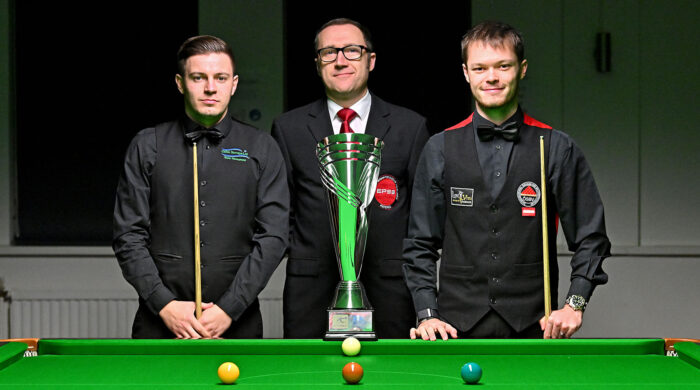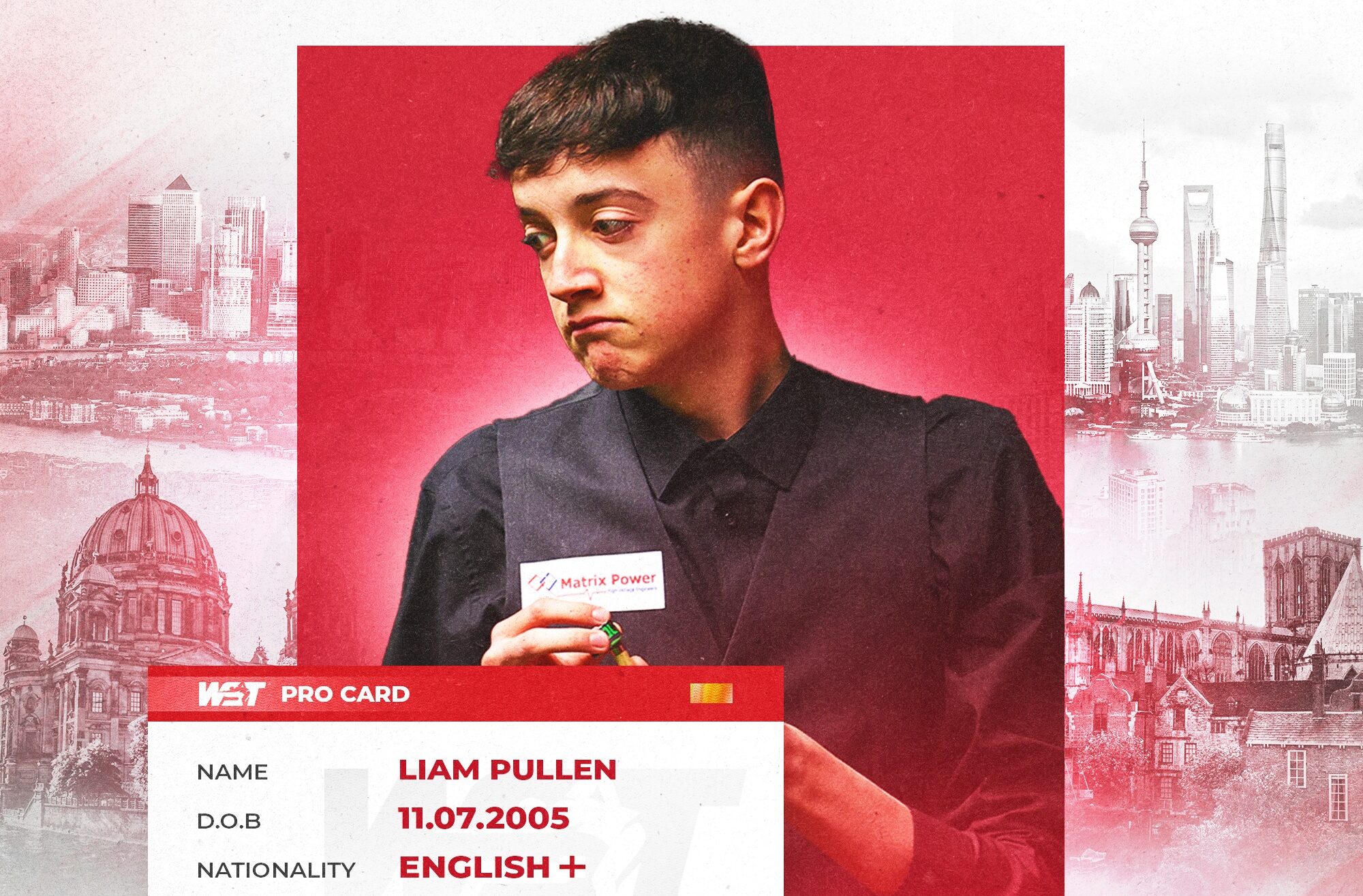The British version of Q School came to an end on Tuesday. Of the eight qualifiers, six were professionals from the past season. Only one newcomer, Liam Pullen, managed to qualify. Some of the participants expressed their frustration with the current system afterwards. Målin gives her own personal and possibly unpopular opinion on that matter.
Peter Devlin is not amused
Playing in Q School is horrific, it’s a brutal situation for everyone involved, the entry fee is very high and the relegated professionals seem to have an unfair advantage.
The players who qualified were understandably very emotional. Others were understandably very frustrated. Peter Devlin has spoken out in three short videos that he has shared on social media. He makes some good points. I recommend anyone who hasn’t already done so to watch it:
2/3
I tried to make it a little less boring with my stupid transitions 😂
Other people’s opinions are welcome, do you agree or disagree etc
If you’re not snooker related, don’t bother watching! It’s not gonna make sense haha pic.twitter.com/2HBKbHPiho
— Peter Devlin (@PeterDevlin147) June 7, 2023
I wrote this article in response to these and other comments and all the discussion that has developed on social media and in the snooker.org member group chat as well. At first, this wasn’t intended to become an article. Now it’s an article by accident. It is already my second opinion piece on Q School for SnookerPRO. And while for the most part I stand by my points from the first article, this one adds a little more. Actually in the last article I stated there will be a second article. And hey – here it is. This time in English.
Do we need new faces coming through Q School?
First of all, I don’t share some of the criticisms of Q School. Yes, it is certainly a nightmare to play there, especially given the high entry fee. But apart from that, I don’t see it as a problem that this format mainly favours former pros who have just been relegated. Almost a quarter of the tour is relegated every season, and it’s good that those who might not be good enough to establish themselves on the tour yet get another chance straight away if they beat the up-and-coming amateurs. If veteran snookers benefit because they are still good enough, that’s fine. But if players like Dean Young, Louis Heathcote and Alex Ursenbacher or Aaron Hill return without being off the tour for a year, I think that’s a good thing.
Only a portion of the new Tour spots are provided by Q School, and there are plenty of other options that are much friendlier to potential rookies. As it is, there will be at least 11 rookies next season, most likely more.
Q School format and entry fee
I don’t think Q School should be abandoned yet. That doesn’t mean it has to stay the way it is now. I like the idea of having a single qualifying tournament between seasons, where pros who have just fallen off the tour can participate. But of course one can think about how to make this event fairer and less cruel.
Talking about entry fees: If former pros have a huge advantage, why not have a lower entry fee for people who have never been pros? Or for young players in general? Why not give all national federations a free place so that players can compete for a free place in Q School in national leagues or competitions everywhere? I know the EPSB does this but I don’t know how it is organised. I assumed that they simply pay the entry fee for their players. But as I said, the WPBSA could give incentives to all national federations.
As for the format of Q School, I’m torn. A league/round-robin system would provide more fairness, but only as long as everyone has something to play for in each group match. Why do all participants play in multiple events? Multiple events can help even out the bad luck in the draw. But it also means that each player has to stay longer, which increases accommodation costs. Surely there is a better format for this than the current one.
How fair is Q Tour?
Would I personally like to see a better Q Tour? Absolutely. But just moving the tour cards from Q School to Q Tour cannot be the solution in my opinion. Firstly, because I think it’s good to have some cards that the relegated pros can play for, as mentioned above. And secondly, because I think Q Tour still has some problems that should be addressed first. Is Q Tour fairer than Q School? I am just a fan and blogger and of course not the one to answer this question. So I would like to read some opinions on the subject from amateur players, especially those who do not live in the UK and may not have unlimited money to spend. I imagine it is easier to save up your money to travel to the UK once for a fortnight than to travel all over Europe for several weekends during the season.
The Q Tour 22/23 had four events in the UK and two in the rest of Europe. A fairer way for European players would be more like 12 events: e.g. 1 in the UK, 1 in Ireland, 1 in Belgium, 1 in Germany, 1 in Spain, 1 in Austria, 1 in Poland, 1 in Estonia, 1 in Latvia, 1 in Ukraine, 1 in Hungary and 1 in Bulgaria. In the end, the best 10 results will be included in the ranking. But we won’t be able to achieve that in the next season or two. It’s just not realistic. Let’s first think about how we can expand and improve the Q Tour.

Ashley Carty won the Q Tour play off 2023. © WPBSA
Closing the gap between pros and amateurs
What I would like to see as a short- and medium-term solution to the problems with the current qualifying system is to open up the boundaries between the professional and amateur ranks a bit. Shaun Murphy was notoriously unhappy about amateurs playing on the tour in the past. I can only disagree with him on that. I think there should be more amateurs playing alongside the pros and we should think about how to redesign the tour to make that possible. And we should think about how we select the amateur players, because the current system with wildcards and top-ups is not fair.
Improving Q Tour
My idea would be to reduce the tour to 120 (112, 104, 96) players so that at least 8 places could be filled with amateurs in every tournament with a 128-player field. Imagine if there were as many Q-Tour events as there are European ranking tournaments with a 128-player field. Each Q-Tour tournament would be a stand-alone tournament where you could earn points for the ranking and win a nice trophy at the end. In addition, the last 8 of that tournament would fill up the spots for the next professional ranking tournament. So for each tournament, for example, there would be 116 professionals, 8 Q-Tour qualifiers and 4 local wildcards. (For tournaments outside Europe, there must be another local qualifier for amateurs).
This would give more amateurs the opportunity to get used to professional conditions. Dropping out of the tour and playing in Q School would be less devastating as it would not be so much of an all-or-nothing situation. And there are more incentives for the Q Tour, while it’s also much more worthwhile to pick and choose individual events if you can’t afford to play in all of them. Over the years, there could be a shift in numbers so that the number of Q Tour qualifiers increases and the number of professionals continues to decrease. Perhaps ways could be found to link the Q-Tour and the professional rankings and introduce a direct relegation system between the two. But this is not easy because the Q Tour, although open to all, is and should remain a European tour.
A truly global tour
Travel is expensive for amateur players. I don’t think it’s necessary to restrict the Q Tour, but I envision it as a European division. Of course, amateur players from other parts of the world should be given similar opportunities, like an Asian Tour that offers places for Asian tournaments. But the Main Tour is not really global yet. Players from America, for example, cannot qualify for local tournaments. They should get wildcards for tournaments in the UK.
Bring a Juniors Tour
To soften the boundaries between professionals and amateurs, one can also choose the opposite path. More professionals should play in amateur events or leagues. There are already a number of pro-am tours. These are mainly the Seniors Tour and the Women’s Tour. As with opinions about amateurs in pro events, I often read statements that these tours should only be for amateurs. I can’t agree with that. I think the inclusion of professionals is a good thing to increase the quality and interest in these tours. It also gives players who are further down the professional rankings more meaningful opportunities to play and an extra chance to earn a little income. It’s great to have women on the tour, but it’s also good to have young, aspiring female players competing against the best women on the WWS tour. It helps them to improve.
The step from the amateur to the professional ranks just shouldn’t be that big. So maybe we should have more of these side tours. I have in mind a Juniors Tour in particular. Similar to the Seniors Tour, amateur players under a certain age and professional players under a certain age who are not in the top X of the professional rankings would be eligible to play. Establishing a tour from scratch is difficult, but you could start with a Junior World Championship. The winner would get a tour card if they are an amateur or lose their tour spot at the end of the season.

WSF Junior Champion Stan Moody. © World Snooker Federation
Some last words
These are just two ideas of mine on how to close the gap between amateurs and professionals. There are probably many other ideas and especially better ones. I have been thinking about what I would like to see as a fan, what could possibly be fair and not coming with a big advantage for British players and what could be realistic and grow over time. I think the amateurs need a smoother promotion system and more and fairer opportunities to gain valuable experience against good players and in professional conditions. In addition, the structure of the tour, the format of the tournaments and especially the ranking system should be revised to make it easier to improve steadily and move up in the professional ranks.
Keep in mind that I’m just a fan. A big fan, but not an amateur myself. I don’t have much insight into anything, apart from following both the Tour and large parts of amateur sport closely. And I am 100% aware of that. I try to be as smart as possible, but there is no guarantee that I will succeed.





